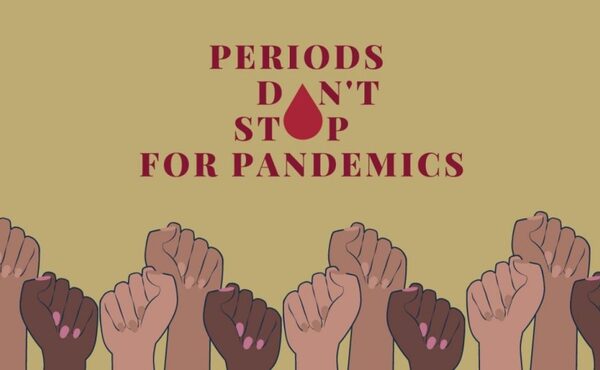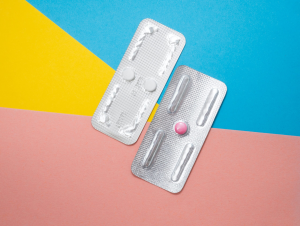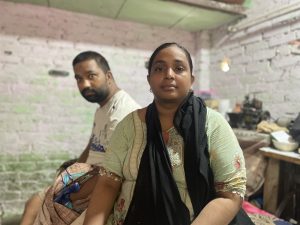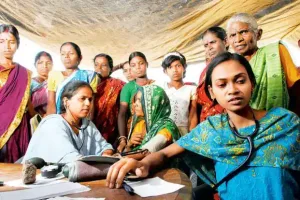Menstrual Interventions Vary Across Countries; Still A Long Way To Go

As India announced one of the harshest lockdowns in the world, among the many groups that remained invisible in the government policy announcements were menstruating persons. Hygiene essentials for menstruating persons were missed out in the essentials list of items and services announced by the government. The Union Ministry of Health and Family Welfare, in an affidavit filed in the Bombay High Court in response to a petition seeking that sanitary products be declared an essential commodity, said such a decision could only be taken after due process of assessing the demand and supply gap. Disposable pads were added to the essential items list only 6 days later after a collective demand by the public.
While the Indian government dragged its heels in making menstrual products available to an entire population, other countries around the world have taken more proactive and gender sensitive policy decisions.
On 24th Nov 2020. Scotland unanimously passed The Period Products (Free Provision) (Scotland) Act This act makes all menstrual products – disposable pads, tampons, reusable items like menstrual cups and others accessible to all menstruating persons for free.
The United Kingdom, which has seen a rise in period poverty, formed a Period Poverty Taskforce, chaired by the Minister for Women & Equalities with the UK based charity Plan International and the MNC Procter & Gamble.
A British charity, Bloody Good Period (BGP), which has been distributing menstrual products to food banks, community support groups, those fleeing domestic violence, asylum seekers and refugees, homeless shelters and even NHS frontline workers, said that it was supplying them six times more since the pandemic started.
New Zealand recently made its first systemic move against period poverty by making sanitary supplies like organic pads and tampons free for schoolgirls, ensuring uninterrupted education for more than 90,000 girls. According to the Youth19 Survey on Period Poverty in New Zealand, 12% of the country’s 9-13 year olds have difficulty getting menstrual products due to cost. This issue affects students from less financially well off communities four times more than usual. The scheme which started in July covering low socio-economic areas with 15 schools will be expanded to cover all state schools by 2021. This decision is an effort towards tackling child poverty and ensuring that welfare schemes fight any deterrent to this demographic attaining their full potential.
The United States of America enacted The Coronavirus Aid, Relief, and Economic Security (CARES) Act, on March 27th which has made menstrual products a part of the list of items eligible under Flexible Spending Accounts (FSAs) and Health Savings Accounts (HSAs). This includes tampons, pads, liners, sponges and more sustainable options like period underwear and menstrual cups. CARES Act also includes painkillers for those suffering from period pain to be available Over The Counter (OTC) without prescriptions.
In all these countries, the understanding of menstrual health and hygiene is tied in with the ideals of fundamental human rights, women’s rights, menstrual equity and dignity. However, menstrual health is beyond access to products. It is tied to larger social cultural structures like patriarchy and socio-political realities such as menstrual taboos, discrimination, exclusion and even violence.
Kenya has recently announced policy measures to go beyond the accessibility of products and touch upon these complex socio-cultural aspects. For its menstrual hygiene management policy, and strategy, civil society and experts in the area of menstrual health have joined hands with the government to strategize and develop menstrual policies and schemes for the country. While the document looks promising and inclusive, monitoring and evaluation, progress indicators are yet to be decided by the government.
Nigeria invested 2 billion US dollars in partnership with The United Nations Children’s Fund (UNICEF) in a ‘Sanitation and Hygiene Fund’ towards universal sanitation and menstrual health and hygiene. During the times of the pandemic, this ensures in bridging the inequitable and deplorable sanitation and health gaps in Nigeria. In a country where over 83 million people live below the poverty line, this has the potential to address deep rooted negative attitudes such as the belief that menstruating bodies carry bad luck.
UNICEF is also collaborating with Essity, a health and hygiene company in Mexico to promote awareness on sanitation and menstrual hygiene, especially taboos around menstruation among children. This ‘Hygiene is our right’ campaign addresses the challenges in retaining school attendance numbers in a city that is battling severe water shortages. An average person pays 150 pesos (slightly more than a daily wage earner’s income) for a bottle of water in Mexico city.
Countries in South Asia, India, Pakistan, Nepal, Afghanistan and Bangladesh are yet to address these complex socio-cultural attitudes and indeed menstrual health equity.
The Indian government continues to neglect menstrual health and hygiene (MHH) needs despite ample coverage on the disrupted supply chain of menstrual products. The only gendered policy response during the Covid pandemic has been a transfer of INR 500 per month for the months of April, May and June of the lockdown to 200 million women Jan Dhan account holders. State governments in India are yet to devise any state specific policies and programs to ensure adequate menstrual health.
In Pakistan, households were given 12,000 as part of the Ehsaas emergency program, as part of their social welfare package. This, however, excluded MHH access. Bangladesh, which was simultaneously dealing with Cyclone Amphan also missed out menstrual health access. The 2,500 COVID stimulus packages for poor families announced by the government primarily focussed on rehabilitation measures.
Afghanistan, while focusing on Water, Sanitation and Hygiene (WASH) infrastructure, has always neglected MHH needs. The Government of Afghanistan distributed more than 77,000 hygiene kits as part of COVID relief and set up 15,000 handwashing stations. As a conflict region, relief included emergency shelters and non food items (NFI) such as clothes, mats, blankets, soap and bowls. A recent Household Emergency Report that assesses household’s NFI needs states that 77% households needed menstrual products. However there is little data to assess whether these needs were met.
The cost incurred per menstruating person to access a quality product is largely dependent on the type of product one chooses to use based on their knowledge and other factors. This is a cost that needs to be factored in when such initiatives are thought out, especially during a pandemic.
Nepal has announced that government schools will be a major chain in the distribution of menstrual products like disposable pads which will start in over 29,000 schools once they reopen. Apart from this, the government in Nepal has little else in ensuring MHH access. In fact, households in Nepal practice Chhaupadi, where menstruating women are prohibited from touching communal objects and are banished from the main household during the period. This practice was declared unconstitutional in 2018 and yet continues to be practiced unmonitored.
Menstrual discrimination is practiced in Afghanistan too.
“At the community level, we are concerned that women will again have to stay at home after years of social engagement and positive changes in women’s participation,” says a social organizer of a civil society organisation in an OXFAM report titled ‘A New Scourge to Afghan Women: COVID-19.
India and other South Asian countries need to introduce systemic reforms and implementation of policies and schemes that assert the importance of menstrual equity. The Indian state of Bihar, in 1992, instituted a policy that provides women state government employees upto two days leave every month during their periods. More conversations, however, are necessary around other aspects such as social prejudice, cultural taboo, economic strata a person belongs to which reveals inequities in access to resources along with other issues related to privilege, power and agency.
[Subhiksha Manoj is a writer and researcher who focuses on gender concerns. She is currently a Project Associate at Boondh, a Bangalore based enterprise working along the vertices of menstrual health and hygiene, literacy, policy, advocacy, programming and activism.]
[Bharti Kannan is a menstrual rights advocate and the Founder of Boondh, a Bangalore based enterprise working along the vertices of menstrual health and hygiene, literacy, policy, advocacy, programming and activism.]
[Boondh is a social enterprise working in the space of menstrual health, literacy, policy advocacy, and sustainable products. COVID X Menstruation is a series of articles that explores menstrual health and hygiene along multiple intersections like menstrual programming, product supply, government policies, civil society interventions, mental health, and more. You can follow them on Twitter, Facebook and Instagram.]
We believe everyone deserves equal access to accurate news. Support from our readers enables us to keep our journalism open and free for everyone, all over the world.




